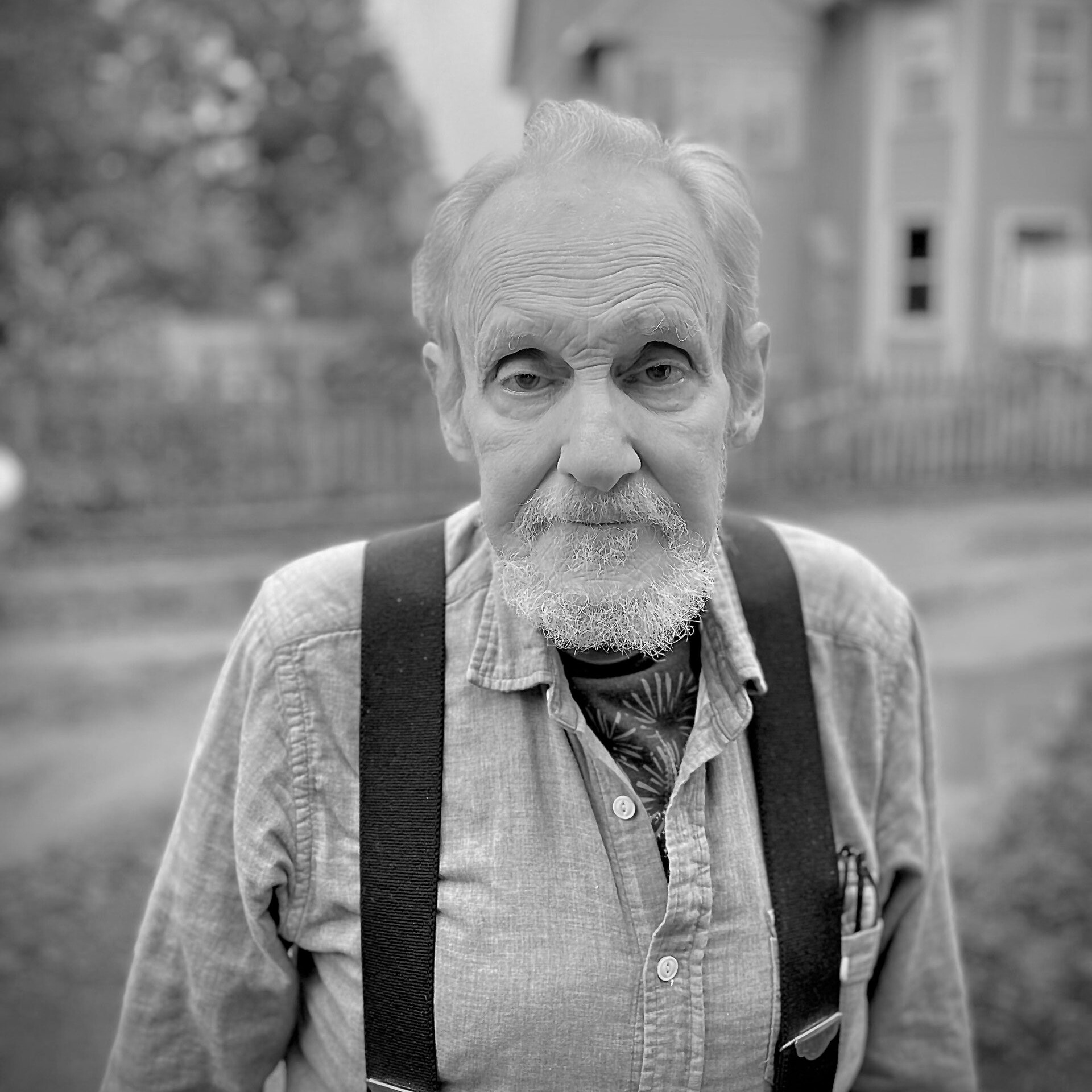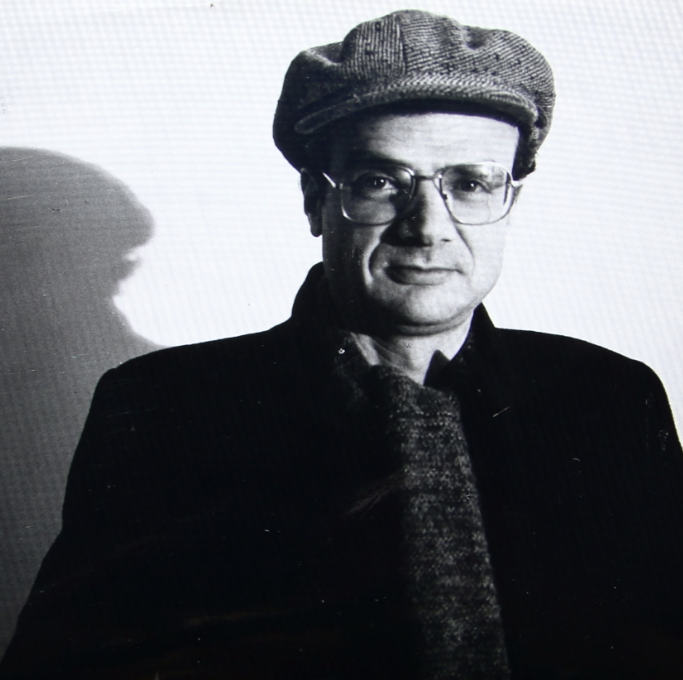Peter Schjeldahl. Photo: Ada Calhoun Author, critic, and poet Peter Schjeldahl—whose books include Let’s See and Hot, Cold, Heavy, Light—has died at age eighty. The New Yorker has collected some of his signature pieces, including his essay from 2019, “The Art of Dying,” and David Remnick has written a remembrance. Yesterday, in his newsletter, Sasha Frere-Jones wrote, “I like The Hydrogen Jukebox but it’s not at all that important which collection you choose. Schjeldahl was relentlessly consistent. From his first column in the ‘70s on, you could not sell him a bill of goods or extinguish the love he
Bette Howland. Photo: Jacob Howland/A Public Space Online at n+1, Ava Kofman writes a remembrance of Bruno Latour, the French philosopher and sociologist who died earlier this month. “In a sense, Latour’s career was a matter of insisting that he meant most of the things he said, however unlikely they might sound,” Kofman writes. “Still, he occasionally found himself ‘squashed’ by the number of activities he’d thrown himself into. The CV he posted on his personal website was 112 pages long. His philosophical project didn’t lend itself to paraphrase, but one theme he returned to again and again was
Morgan Parker. Photo: Rachel Eliza Griffiths. For The Atlantic, Charlie Tyson looks at two new books—The Choreography Of Everyday Life by Annie-B Parson and Martha Graham: When Dance Became Modern by Neil Baldwin—to explain how dance and everyday movement inform each other. Writing about Parson, Tyson observes, “For her, dance is not a rarefied form. It is more like the natural, everyday motion of strolling down the street, which, after all, involves considerations of line, space, and tempo. City life, especially, requires dancelike coordination.” For more on Graham, see Claudia La Rocco’s review of Baldwin’s book in our current
Namwali Serpell. Photo: © Jordan Kines Photography On the New Yorker’s Page Turner blog, Jane Hu writes about Hilary Mantel’s double vision. Hu describes Mantel’s health issues and the way that these infirmities fed her writing process: “Writing enabled Mantel to locate herself in a body that felt increasingly alien. In the face of confusion and loss, she began to tell stories.” In Gawker, a breakdown of how the new global news site Semafor is breaking down the news. Sophie Haigney interviews Nancy Lemann for the Paris Review. Describing her first novel, The Lives of the Saints, Lemann says,
Shehan Karunatilaka Seven Moons of Maali Almeida by Shehan Karunatilaka is the winner of the 2022 Booker Prize for fiction. You can watch the announcement on the Booker Prize YouTube channel. LitHub has three short essays by poet Ross Gay. His new book of essays, Inciting Joy, will be published later this month. Gay contributed an essay to Bookforum’s summer issue on basketball, and took part in our video panel on sports and literature. For Slate, Imogen West-Knights reports from a Gone Girl–themed cruise: “While I was on the boat, people at home texted me with concern, as though
Manuel Muñoz This week, on his Substack “Story Club,” George Saunders will be leading a discussion of Manuel Muñoz’s “Anyone Can Do It,” which appears in his story collection The Consequences, out from Graywolf Press this week. In addition to Saunders’s discussion, Muñoz will drop in to answer some reader questions. Sadie Stein has been hired as the preview editor at the New York Times Book Review. A longtime contributor, Stein has also worked at Jezebel and the Paris Review. According to the paper’s announcement of Stein’s new position: “Preview editors must read hundreds of unreleased books each year
Serge Daney. Photo: Jean-Paul Fargier/Wikimedia Commons The T. S. Eliot Prize has announced its shortlist of ten new poetry collections. The winner will be announced in January. Printed Matter’s 2022 NY Art Book Fair started yesterday and will continue all weekend on 22nd Street in Manhattan. The fair has a full slate of events, special projects, and programs, including a free block party on Saturday. The exhibitors include galleries, magazines, booksellers, artists, collectives, and more. Los Angeles’s Mezzanine film series is hosting a tribute to the French film critic Serge Daney on Sunday. Ticketholders will receive a zine by
Kiese Laymon In the New York Times Magazine, Ismail Muhammad asks, “Can Black Literature Escape the Representation Trap?” Looking at recent fiction, and considering the debates about Black representation in literature stretching back to Baldwin, Wright, Hurston, and Morrison, Muhammad defines the stakes and limits of representation in literature, writing: “This is representation’s trap—the whittling down of Black life’s full scope into marketable, digestible facsimiles that are then thrust onto Black writers.” The 2022 MacArthur Fellows have been announced. In a preview of the new issue of The Drift, Noor Qasim writes about Annie Ernaux and the millennial sex
Vivian Gornick. Photo: Mitchell Bach The Paris Review has announced that critic and memoirist Vivian Gornick will receive the 2023 Hadada Award, the journal’s lifetime achievement prize. Mona Simpson, publisher of the Paris Review, said in a statement, “Gornick, like her admired Sebald, pulls off her enormously ambitious interior project—with brash, deep humor, and with a burning interrogation of the many selves she was before this one, here and now, the one talking to us from the page.” In a 2021 interview for Bookforum, Gornick told Emily Gould: “My preoccupation with internal self-division still compels me completely. That’s my
Still from Sarah Polley’s Women Talking. Photo: Courtesy United Artists. Via LitHub, the trailer for Sarah Polley’s film adaptation of Miriam Toews’s novel Women Talking. Leslie Jameson reviewed the book for the summer 2019 issue of Bookforum. Astra magazine’s new issue, on “filth,” is online now. The editors write, “There is a moral element to filth. It is both what we have been taught to hide, and the subversive pleasure in revealing it.” The magazine’s second issue covers its subject in poetry, fiction, essays, memoir, and more. In Tablet magazine, J. Hoberman looks at the work of Diane Arbus, as David
Lydia Millet. Photo: Nola Millet For the New York Times Magazine, Christine Smallwood profiles Lydia Millet, whose latest novel, Dinosaurs, will be published next week. Millet lives in Arizona, where she works at the Center for Biological Diversity. “Writing and conservation are both aspects of vocation for me,” she tells Smallwood. “She wouldn’t feel like herself if she didn’t write novels and stories, but ‘it feels self-indulgent to do only that. It’s not the same as action.’” In the current issue of the New York Review of Books, Sigrid Nunez reviews Getting Lost, the newly translated 2001 diary by
Annie Ernaux. Photo: Catherine Hélie, Gallimard. The French novelist and memoirist Annie Ernaux has been awarded the 2022 Nobel Prize in literature. Ernaux, an autofiction innovator with about twenty works to her name, is published in the US by the indie press Seven Stories. The press tweeted an exuberant thread, including thanks for Ernauax’s English translators, Alison L. Strayer, Tanya Leslie, and Anna Moschovakis, and links to buy Ernaux hats and shirts with her name printed in a death-metal font. Bookshop.org is running a sale on her books (though most are now on backorder). Ernaux’s most recent book translated
Hanif Abdurraqib. Photo: Megan Leigh Barnard Oprah Daily has the cover reveal for Brandon Taylor’s forthcoming novel The Late Americans, which will be published in May 2023 by Riverhead. Elon Musk is reportedly moving forward in his bid to buy Twitter for $44 billion. For the New York Times, poet and essayist Hanif Abdurraqib writes about country music star Loretta Lynn, who died this week at the age of ninety: “I found her to be one of the great romanticists because she was so committed to the rigors of loving herself that she suffered no one. She’d be quick
Vivian Gornick, 2020. Photo: Mitch Bach The National Book Foundation has announced the finalists for the National Book Award. The Onion has submitted an amicus brief to the Supreme Court in support of Anthony Novak, a parodist who created a fake Facebook page for the Parma Police department in Ohio. The brief states, “As the globe’s premier parodists, The Onion’s writers also have a self-serving interest in preventing political authorities from imprisoning humorists. This brief is submitted in the interest of at least mitigating their future punishment.” For Lux magazine, Vivian Gornick writes about her years in psychoanalysis, the
Victor LaValle. Photo: Teddy Wolff Victor LaValle is adapting his novel The Devil in Silver into a miniseries, which will air on AMC. According to Deadline magazine: “The Devil in Silver would be the first season in a potential new horror anthology series for AMC and AMC+ that will feature average people caught up in horrific stories in today’s world.” LitHub weighs in on who will win the next Nobel Prize. Early reviewers of Blonde, the new film based on Joyce Carol Oates’s novel of Marilyn Monroe, have not been kind. Grove Press has purchased Prophet, a new novel
Tsitsi Dangarembga. Photo: Hannah Mentz PEN International has issued a statement on the conviction of Zimbabwean author and filmmaker Tsitsi Dangarembga, who was arrested without explanation or charge while peacefully protesting with her friend Julie Barnes in 2020, and later arraigned in court for “incitement to public violence” and “breaching of COVID-19 health regulations.” Per PEN’s statement, which was released yesterday: “Tsitsi Dangarembga and Julie Barnes should be celebrated as model citizens, not condemned as criminals following a sham trial on trumped up charges of promoting public violence. We called for and expected their unconditional acquittal today, after more
Cathy Park Hong As part of its “At Home in Asian America” feature package, New York magazine has a profile of Cathy Park Hong by Clio Chang. Hong is a poet and the author of Minor Feelings: An Asian American Reckoning. Discussing the wide resonance of that 2020 book, Chang writes, “At the time, there were a handful of prominent Asian American writers but no one who served the function of a catchall spokesperson for the idea of Asian America.” For the New Yorker, Keith Gessen talked to experts in war-termination theory about possible outcomes in Ukraine. In the
Celeste Ng. Photo: Kieran Kesner As part of a special editorial package “At Home in Asian America: Who Are We Becoming?” in this week’s issue of New York magazine, Andrea Long Chu writes about Celeste Ng’s Our Missing Hearts and considers what it and other “mixed Asian novels” offer readers. For Chu, these are novels written by people who, like their main characters, “are of both white and East or Southeast Asian ancestry”; these characters tend to share “a gnawing uncertainty” about their race and what it means to them. “Asian America is not an idea for these authors,”
Torrey Peters For Electric Literature’s “What Comes Next” series, in which debut authors talk about their second book, Isle McElroy talks with Torrey Peters. Peters tells McElroy, “When I thought of writing as a craft, I don’t think I knew what writing was for. I thought if you write something beautiful that is enough. Now, I feel that writing is largely about communicating something urgent to certain people.” Bookforum is hosting a free online event on September 30th. “Sports Annotated,” will feature Lindsay Zoladz, Miranda Popkey, Ross Gay, and Thomas Beller discussing sports and literature. You can get your
Hilton Als Publishers Weekly reports from the Joan Didion memorial service, which took place last week at the Cathedral of St. John the Divine. Speakers included Didion’s Knopf editor Shelley Wanger; New Yorker editor David Remnick; author and musician Patti Smith; actor Vanessa Redgrave; politician Jerry Brown; poet Kevin Young; and writers Hilton Als, Susanna Moore, Jia Tolentino, and Calvin Trillin. Nic Rowan provides his account of the Didion memorial at The Lamp: “The celebration, after all, was a publishing house’s attempt at making the myth of Didion as the Last All-American Writer.” This fall, Random House will publish



















